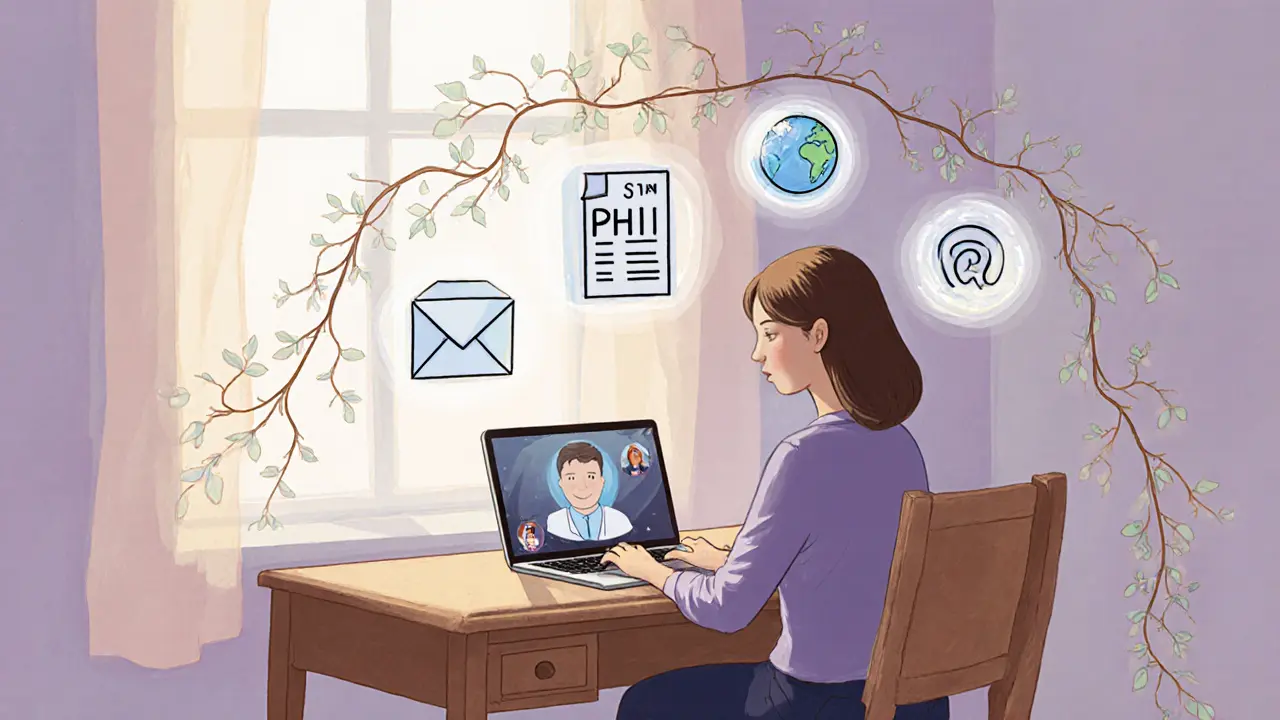HIPAA – Ochrana soukromí v psychoterapii a online terapii
When working with HIPAA, americký zákon, který stanovuje pravidla pro ochranu zdravotních informací. Also known as Health Insurance Portability and Accountability Act, it sets strict standards for how klientské údaje must be handled, whether in a physical office or online. HIPAA thus directly shapes the way psychotherapists protect client confidentiality.
One of the most relevant teleterapie, poskytování psychologické pomoci přes videokonference a jiné digitální kanály falls under HIPAA’s scope. The law requires end‑to‑end encryption, secure storage, and a Business Associate Agreement with any platform used. Without these safeguards, a therapist risks both legal penalties and loss of client trust.
Secure data handling is another core zabezpečení dat, praktiky, které chrání citlivé informace před neoprávněným přístupem. HIPAA mandates technical safeguards such as access controls, audit logs, and regular risk assessments. In the Czech context, therapists often combine HIPAA‑aligned measures with local GDPR requirements, creating a dual compliance framework that reinforces client privacy.
Online therapy platforms, often labeled online terapie, digitální forma psychoterapeutické péče, která využívá internetové připojení, must therefore integrate HIPAA‑compliant security features. This includes encrypted video streams, secure file transfer, and clear consent forms that outline data use. When these elements are in place, clients feel safer sharing personal experiences, which improves therapeutic outcomes.
Proč je HIPAA důležitá i pro české terapeuty?
Even though HIPAA is a U.S. regulation, many Czech therapists collaborate with international partners or use software hosted abroad. In such cases, HIPAA’s cross‑border data‑protection clauses become relevant. Moreover, the law’s emphasis on “minimum necessary” data collection pushes therapists to limit the amount of personal information they store, aligning with best practices recommended by local health authorities.
HIPAA also influences the therapeutic relationship itself. By guaranteeing confidentiality through robust security, therapists can focus on building trust rather than worrying about data leaks. This enhances client engagement, reduces dropout rates, and supports long‑term recovery.
For therapists who are just starting with online services, the first step is to audit their current tools against HIPAA criteria: Is the video platform encrypted? Does the provider sign a Business Associate Agreement? Are access logs maintained? Answering these questions creates a clear roadmap toward compliance.
In the collection of articles below you’ll find concrete examples of how HIPAA‑related concepts intersect with various therapeutic approaches – from mindfulness to family therapy, from digital addiction treatment to telepsychology guidelines. These posts show practical ways to integrate security measures without compromising the human side of therapy. Dive in and discover how you can keep client data safe while delivering effective psychotherapeutic care.
